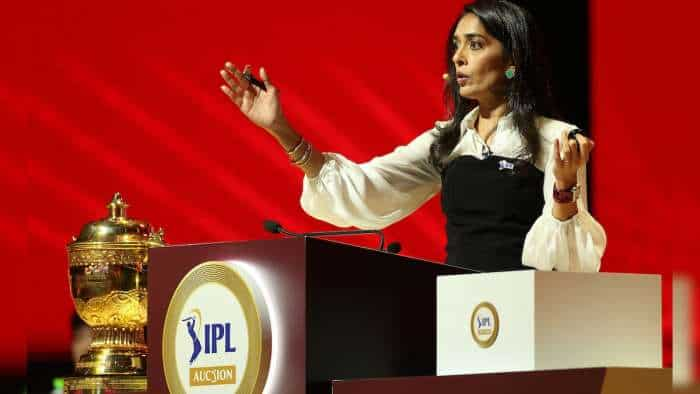Bank account woes: Fed up of minimum balance penalty? Explore this option
Bank account woes: As many as 21 public sector banks and three major private sector lenders collected Rs 5,000 crore from customers as minimum balance penalty in 2017-18.

As many as 21 public sector banks and three major private sector lenders collected Rs 5,000 crore from customers as minimum balance penalty in 2017-18. Thankfully, there is a way out: no minimum balance or zero balance digital savings accounts. These accounts often do not charge any fine for not being able to maintain a minimum balance. However, there are other factors that you should consider before opening such an account. Read on to know more.
How these accounts work
Over the past year there has been a spurt in digital bank accounts. Most digital savings accounts can be opened in three to eight steps. They come with offers like zero balance, debit card, chequebook (in some cases), free transactions and other offers with entertainment partners. The Aadhaar OTP (One Time Password) based e-Know Your Customer (KYC) account opening allows instant paperless account opening with Aadhaar card and PAN card. During the account opening process, the customer will receive an OTP on Aadhaar registered mobile number. The OTP will be used for authentication and identity verification to open the digital account. A customer verified through the Aadhaar OTP based e-KYC is deemed a ‘Partial KYC’ customer.
It is mandatory for all customers on-boarded through the Aadhaar OTP based e-KYC process to complete Full KYC (biometric based e-KYC) within one year of opening the account. As per Reserve Bank of India guidelines, if a customer opens an account using the Aadhaar OTP based e-KYC process, the customer will be flagged as a ‘Partial KYC’ customer with limitations such as, sum of all balances cannot exceed Rs 1 lakh in a year, sum of all credits should not exceed Rs 2 lakh in year, the customer cannot avail any other borrowal account other than a term loan not exceeding Rs 60,000 in a year and cannot do RTGS transactions (RTGS is processed for amount more than Rs 2,00,000).
Eliminating paper-based verification saves operating costs for banks. Replacing physical documentation with digital processes reduces cost of getting additional customers. “The reduced cost is passed on to customers in the form of increased benefits in terms of free debit cards, unlimited online transactions, often zero balance requirements, offers and other value-added services. Also, with fintech paving its way at a rapid pace, digital customers will be the first target recipients of innovative and convenient financial management services by banks,” said Prakash Sundaram, chief strategy and digital innovation officer, Fincare Bank.
Digital savings accounts such as Kotak 811, Axis ASAP, Digibank’s Digi Savings, Standard Chartered Bank’s Digital Account are being offered by a limited number of banks in the country, but the online account products differ across banks in terms of features, interest rates, accompanying offers, minimum balance requirements and charges, said Sundaram.
On the minimum balance norms, there are different options across banks. For instance, Fincare 101 First offers a zero balance account, while Fincare 101 Priority’s Rs 25,000-monthly average balance (MAB) requirement is waved with a fixed deposit (FD) of Rs 1 lakh. IDFC Zero Balance Online Savings Account, DBS DigiSavings, Kotak 811, Axis ASAP, Equitas SelfieSavings account offers a zero balance account. RBL Bank’s Abacus product has a MAB requirement of Rs 5,000, but that is waived off with a recurring deposit (RD) or systematic investment plan (SIP) of Rs 2000.
Also, remember that the debit card given is not always free. For example, Fincare Bank’s debit cards are free for first year but annual charges are Rs 99/annum. Axis Bank’s ASAP has a physical debit card issuance fee of Rs 300 and annual charges Rs 500 per annum for its Visa Online Rewards Debit Card. Kotak 811 physical debit card comes for Rs 199 per annum. Others charge between Rs 100-199 per annum for physical debit cards, while virtual debit cards are all free of charge.
There can also be fees on cash deposits and withdrawals above limits (Rs 100-200), fund transfer fees (RTGS and NEFT charges at branch), international cash withdrawal, cross currency mark-up on international debit card transactions, transaction failure fees, convenience fees, etc.
Pros and cons
The best part of a digital savings account is that it can be opened digitally, without going to the bank. You need not provide any paper-based document to open the account. Your account will be activated almost instantaneously. Navin Chandani, chief business development officer, BankBazaar said: “There are two concerns. The first is that the total amount in an account at a time cannot exceed Rs 1 lakh and the total amount credited to the account in one financial year cannot exceed Rs 2 lakh. For example, say you open a savings account with a balance of Rs 25,000. Later, you deposit another Rs 75,000 to the account. Now, you have reached the maximum limit and cannot make any further deposits, unless you with draw some funds. If you withdraw Rs 50,000, you can deposit another Rs 50,000. There is no cap on the number of deposits, but only on the value that can be held in the account.”
Even if you now withdraw Rs 75,000, you can deposit only another Rs 50,000, as you have already credited Rs 1.5 lakh to your account and your limit is exhausted. The second issue is that if you don’t complete the formal KYC procedure and convert the account into a regular one within a year, it will be frozen. Also, you can open only one account using this method at a time.
(Source: DNA)
Get Latest Business News, Stock Market Updates and Videos; Check your tax outgo through Income Tax Calculator and save money through our Personal Finance coverage. Check Business Breaking News Live on Zee Business Twitter and Facebook. Subscribe on YouTube.
RECOMMENDED STORIES

IPL Auction 2025 Free Live Streaming: When and where to watch Indian Premier League 2025 mega auction live online, on TV, Mobile Apps, and Laptop?

Tamil Nadu Weather Alert: Chennai may receive heavy rains; IMD issues yellow & orange alerts in these districts

SIP vs PPF: How much corpus you can build in 15 years by investing Rs 1.5 lakh per year? Understand through calculations

SBI Senior Citizen Latest FD Rates: What senior citizens can get on Rs 7 lakh, Rs 14 lakh, and Rs 21 lakh investments in Amrit Vrishti, 1-, 3-, and 5-year fixed deposits
01:26 PM IST








 City Union Bank launches voice biometrics for logging into mobile banking app
City Union Bank launches voice biometrics for logging into mobile banking app SBI Server Down: State Bank of India says ‘technical glitches’ impacted online services
SBI Server Down: State Bank of India says ‘technical glitches’ impacted online services Online Fund Transfer Process: Know difference between IMPS, NEFT and RTGS
Online Fund Transfer Process: Know difference between IMPS, NEFT and RTGS Savings bank account holder? Good news! Pay no fee for these transactions
Savings bank account holder? Good news! Pay no fee for these transactions Bank account holder? Alert! Top 6 things that you absolutely must never do on your mobile phone!
Bank account holder? Alert! Top 6 things that you absolutely must never do on your mobile phone!